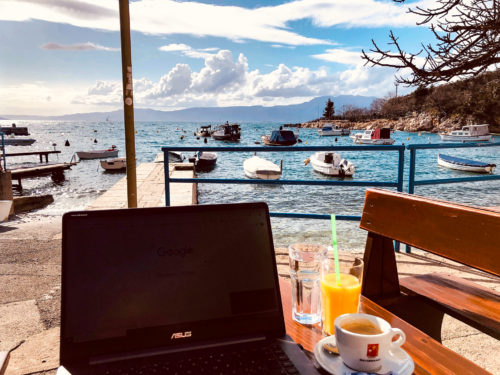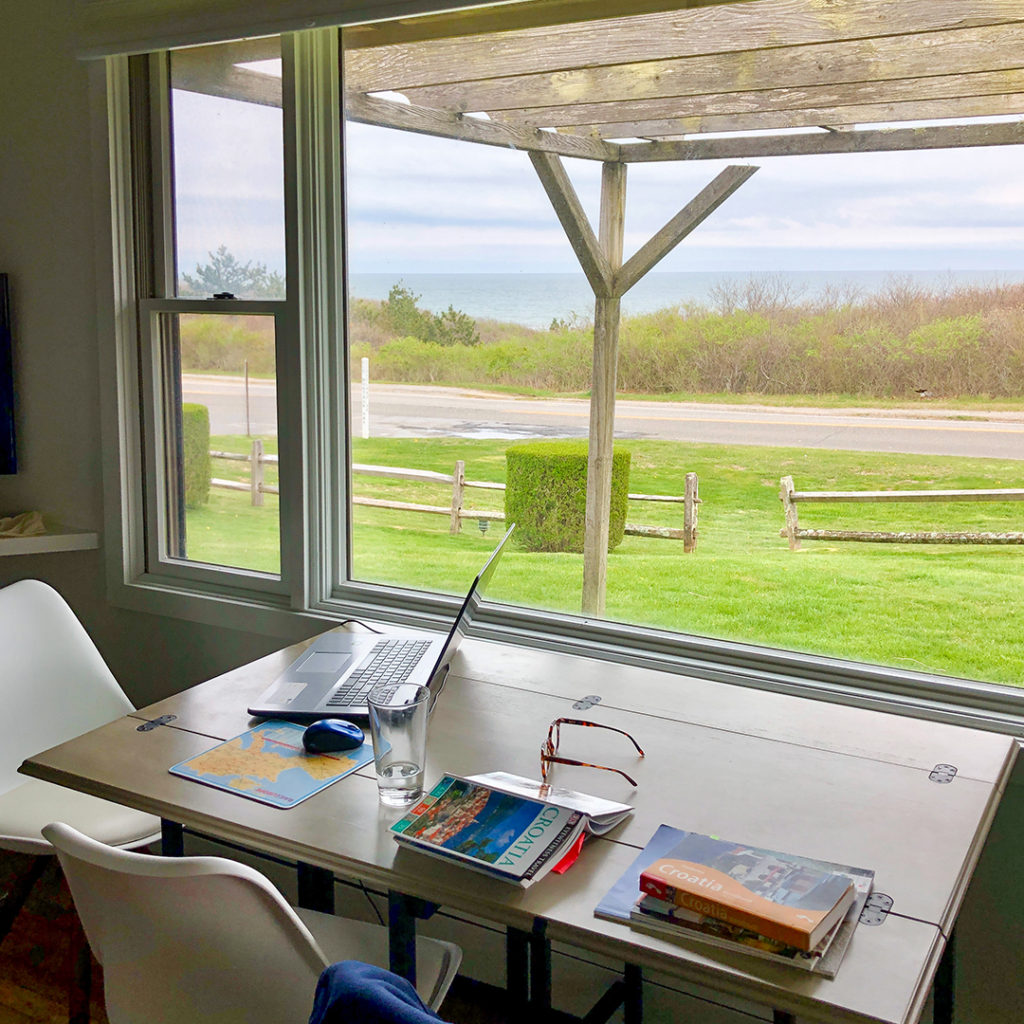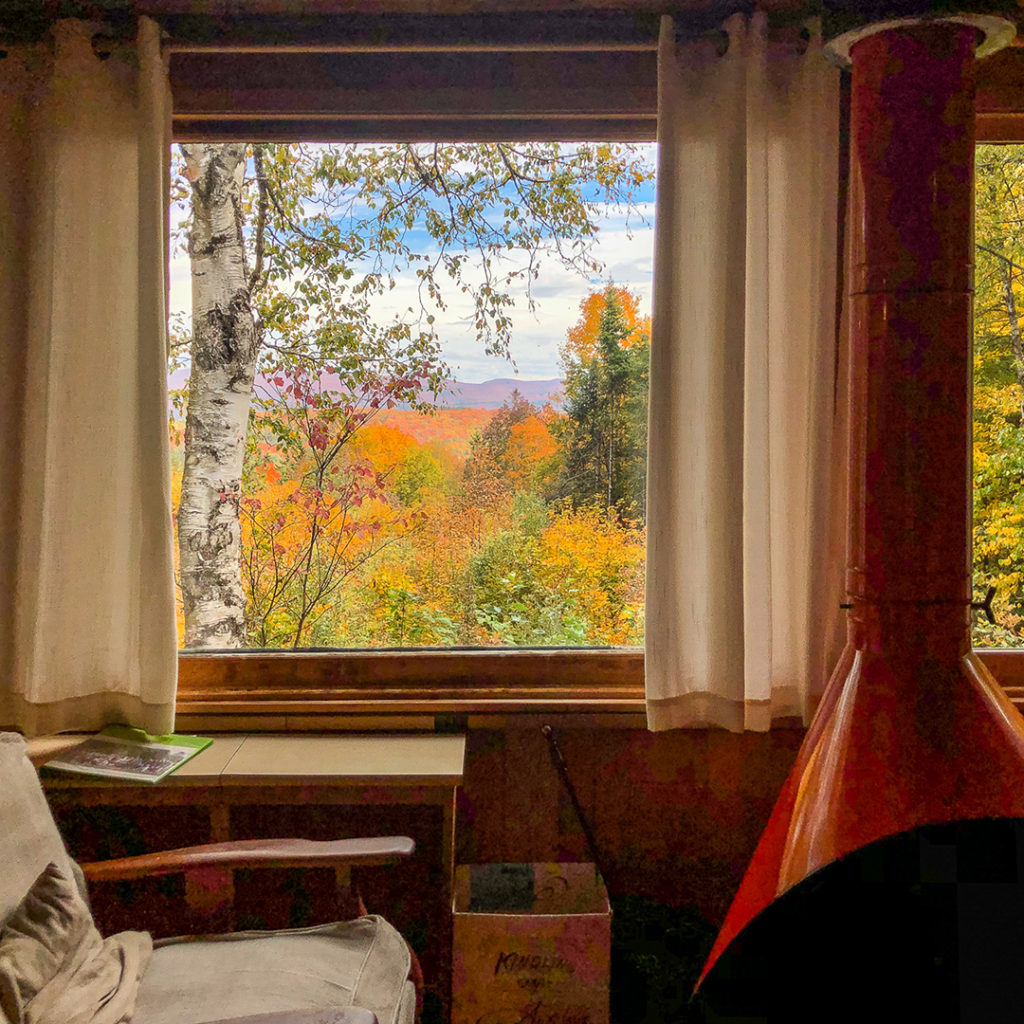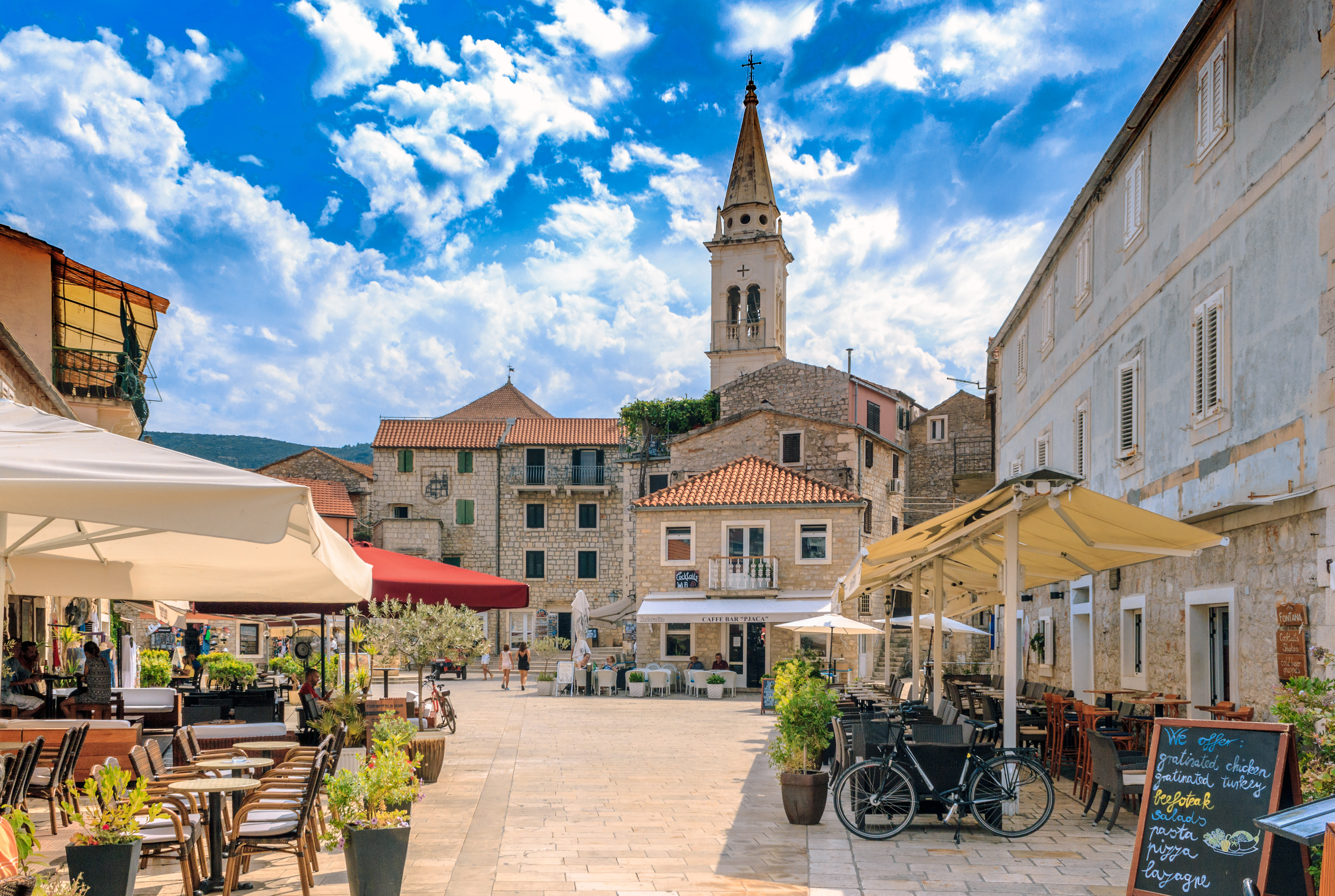Is Croatia the Perfect Destination for Digital Nomads?
Croatia introduced a new long stay visa to digital nomads effective January 1st, 2021. Croatia is one of several countries in the Caribbean and Europe that recently introduced new legislation making it easier for foreigners to work remotely and establish a new home away from home. Find out why digital nomads are making Croatia home.

According to Investopedia, Digital Nomads are “people who are location-independent and use technology to perform their job. Digital nomads work remotely, telecommuting rather than being physically present at a company’s headquarters or office.”
Due to the COVID-19 pandemic, citywide lockdowns, and social distancing measures, the “Digital Nomad” lifestyle has become accessible for huge segments of the American population. People who never imagined they could be unchained from their drab desks, let loose from gray office walls with florescent lighting crisscrossing the ceilings overhead were suddenly granted the ability to work from virtually, anywhere!
Even our own New York office embraced 100% remote working, going one step further and implementing a new paperless system. Both of which we will retain in the future. Bye-bye to packed commuter subways and expensive printer cartridges!
It is undeniable that the pandemic, lockdowns, and social distancing have changed the face of many work environments, likely for years to come. But how long traditional in-office, cubicle style workspaces and businesses will offer the flexibility of remote working remains unanswered. For many telecommuters, this is an opportunity not to be squandered, myself included.
My husband and I share a cozy one-bedroom apartment in Brooklyn, New York. While we have made the best of the limited space (I took many of my calls this summer & fall from the sundrenched stoop in front of my apartment), we welcomed the idea of changing our co-working surroundings. We spent a week in early spring at a Montauk cottage where just over the screen of my laptop waves were crashing. We relished in the quintessential rustic Vermont cabin in autumn where my “desk” was an oversized chair next to a blazing wood fire as leaves endlessly glided to the ground outside the window. All we needed to embrace our new untethered working environment was solid Wi-Fi. We were perfectly content to pack up our car with a few bags of loungewear, laptops, chargers, extra PPE, and our well-traveled dog to make an occasional trip outside of the city. Like many, we were called to experience nature. The outdoors calmed our anxiety, and tended to the wounds of this heartbreaking year. We soothed our weariness with an after-work hike or sunset picnic. For many other adventurous spirits however, our locally based getaways were missing a golden opportunity, one we may not have again. This is a moment for thinking even bigger, or should I say, farther.


One such pair of digital nomads making Croatia home is Jess and Thibaud, who moved from California to the island of Hvar in southern Dalmatia. Total Croatia News featured their story in December 2020, after they had spent the previous four months living and working in Croatia. The couple work for Silicon Valley technology companies, confident they would not be called back into their respective offices, they embraced the moment and temporarily relocated to Croatia. The couple chose Jelsa and found it be everything they hoped for, “quaint, walkable, and charming”. Some of downsides to their nomadic lifestyle are feeling isolated from friends and colleagues, and missing their social lives. The conditions of daily life in a pandemic certainty exacerbate these factors. The couple cited some perks to any remote working setting beyond the extra time provided from the lack of commute. For example, the ability to prepare meals at home, and designing your ideal working environment (think natural lighting, desk height, temperature controls). For Jess and Thibaud, it turns out that the absence of a social life was only temporary, they made some great friends in no time, and consider themselves part of the community in Jelsa.

For nomads like Jess and Thibaud, part of the decision to choose Croatia was the fact that Croatia was one of only a few EU nations open to US travelers in 2020. The couple is part of a larger trend. Croatia reports attracting many digital workers from the US and many other countries who arrived in 2020, looking to make use of the welcoming environment, comfortable accommodations, and excellent weather. Without a Visa, non-EU Citizens are allowed stays up to 90 days, but as of January 1, 2021, thanks to the new Digital Nomad Visa, there is an opportunity to stay even longer.
The story of Croatia’s new Digital Nomad visa was born from none other than an expat from the Netherlands, happily living the digital nomad lifestyle in Croatia for the last 14 years. Jan de Jong is a passionate advocate for Croatia as a destination for foreigners to live and work. He promoted his idea for a special visa to allow for long stay digital workers first on LinkedIn in hopes of gaining the attention of the Croatia government. The plan worked, his post generated tens of thousands of views and an active debate circulated online. De Jong received an invitation to meet and present his ideas. In an interview with euronews.com, de Jong explains “I pitched them the idea and they immediately understood the potential. At the time, changes to the law on foreigners were being considered, and they felt the initiative could be implemented quickly.”
The law passed in December 2020, and Croatia has already welcomed its first new visa holders. Croatia hopes the digital nomads settling there will help support the economy that has suffered with the decline in tourism by filling vacancies in apartments and giving a boost to consumer spending.
WHY CROATIA MAKES A GREAT DESTINATION FOR DIGITAL NOMADS
• SAFETY – Croatia is a very safe country. The US State Department lists Croatia at Level -1 travel advisory, its lowest rating, and advises “exercise normal precautions” when traveling.
• CLEAN WATER – Not only is the tap water perfectly safe to drink, the coastal waters of the Adriatic have been rated highly by the European Environmental Agency report.
• WIFI – An obvious must for any remote worker.
• ENGLISH FLUENCY – With a high rate of English fluency, remote workers will not only be able to communicate for practical purposes of day-to-day life, but also, and perhaps more importantly, to connect with locals, make friends, and establish themselves in their new communities.
• HOUSING – Comfort and affordability are a must, and plentiful in Croatia along the coast and in the Capital city of Zagreb. Bonus – many homes and apartments offer unbelievable views!
• TRANSPORTATION – Croatia’s cities and towns are very walkable. Affordable WIFI equipped buses link cities, while ferries link mainland towns with the islands.
• QUALITY OF LIFE – Access to the natural environment has been an outlet for many during the pandemic. Croatia’s many pristine national parks, miles of coastline, hiking trails and uninhabited islands offer infinite possibilities for outdoor exploration, rejuvenation and awe.
Are you a digital nomads thinking of making Croatia home, or looking for details on the new visa?
Sara at ExpatinCroatia.com is offering information on immigration, health care, setting up a business, free tools for download, and more.